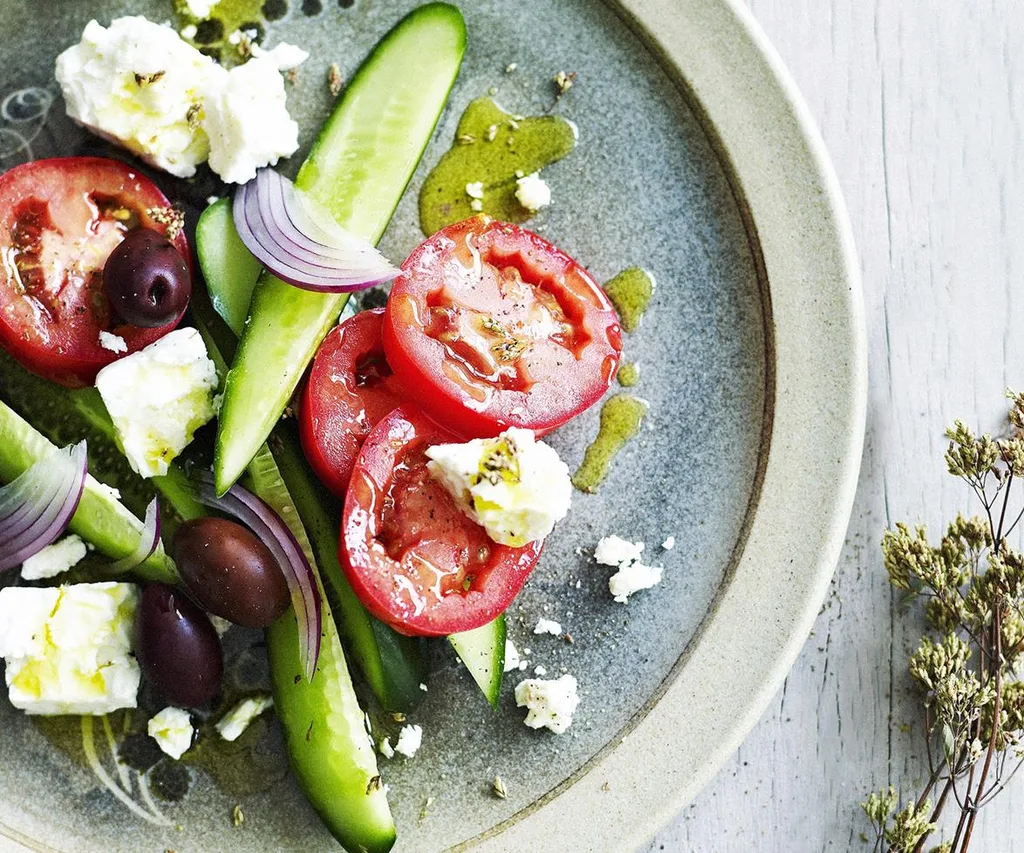While a small percentage of the happy hormone serotonin is released from a cuddle, regular exercise and a healthy amount of sun exposure, the remaining 95 per cent is produced in your gastrointestinal tract.
That’s right, this often overlooked area of the body is lined with a hundred million nerve cells or neurons, which not only help the body to digest food, but play a vital part in guiding your emotions.
“Serotonin is a neurotransmitter that helps regulate sleep and appetite, mediate moods, and inhibit pain,” says Eva Selhub MD, Contributing Editor to Harvard health publications, adding that the production of the neurotransmitter is heavily influenced by the billions of ‘good’ bacterias that make up the intestinal microbiome.
Not only do these strains protect against toxins and fight ‘bad’ bacteria, but they’re also helpful in maintaining the neural passageways between the gut and the brain.
“People refer to the gut-brain axis,” Simone Austin, dietitian and Swisse expert tells NowTo Love.
“This refers to the communication between the gut and the brain. The brain central nervous system, and enteric nervous system.”
If a healthy gut means a healthy mind, then we simply need to know more. Imagine if we could begin to ease our anxieties and depression by making better choices when it came to diet?
Here, we investigate.
Foods that heighten anxiety
1. Alcohol
Though a glass of wine at the end of the day is often thought of as a means to relax and unwind, for many, this is not the case.
Alcohol, a depressant and a sedative, alters serotonin production and that of other neurotransmitters, which despite the initial mood boost a glass of vino can provide, can actually worsen anxiety in the long run.
From alcohol dependencies, to alcohol-induced anxiety, the effects of the drug has on your gut and brain can be far more hindering than helpful.
2. Refined sugars
Not only does a diet abundant in sugars have a negative impact on insulin production, it can also promote inflammation and oxidative stress, says Selhub.
“Multiple studies have found a correlation between a diet high in refined sugars and impaired brain function — and even a worsening of symptoms of mood disorders, such as depression.”
A recent study from Princeton University also found that rats who consumed a diet heavy in processed sugars were more likely to develop anxious tendencies once their sugar source was taken away.
3. Coffee
Despite coffee being rich in incredible antioxidant properties – which have recently been found to promote weight-loss, protect against Alzheimer’s and even make you live longer – coffee, for those who suffer from anxiety, should be treated with a level of caution.
A cup of Joe of a morning can increase heart-rate and sometimes bring on that ‘wired’ feeling. Although this in itself does not create anxiety, it can, for some, worsen symptoms.
“If coffee triggers anxiety or insomnia it should be limited, but if it supports energy and mood, aim for no more than two cups daily,” nutritionist and celebrity chef, Zoe Bingley-Pullin, tells us.
WATCH: Find out the healthy way to have coffee in the video below. Article continues…
Foods that help anxiety
1. Whole grains
Austin recommends a regime high in dietary fibre, which in addition to fruits and vegetables, can also be found in the form of whole grains.
“Lentils and legumes also have good fibre however may cause excess flatulence for some,” she says, adding that “gut discomfort can increase anxiety in some people”.
2. Fermented foods
A scientific breakthrough came earlier this month confirming the link between microbes with mood stability and behaviour. Though it’s long been speculated, the study from the University of California Los Angeles was the first to prove the link in humans, when previously a correlation had only been found in mice.
Sauerkraut, yogurt, miso, kimchi and kefir are all fermented foods which present as an invaluable source of ‘good’ bacteria or probiotics, says Austin.
Sure, taking a probiotic supplement is one way to maintain a healthy gut microbiome, but why not take the delicious route and enjoy some picked vegetables as a side to lunch or dinner, or substitute natural yogurt in the place of sour cream?
3. Almonds
Along with being a fantastic way to beat bad snack cravings and prevent hangriness (a made-up but very important feeling we should all avoid if we want to maintain a balanced mood, says Austin), almonds also contain high levels of zinc, magnesium, good fats and iron.
“Fuelling yourself regularly throughout the day with around three meals and for some people snacks in between can help keep your blood glucose regular and your energy levels,” Austin tells us.
In terms of almonds as a snack, these golden nuts help to keep us feeling calm and satiated, and provide healthy fats for neurotransmitter and brain function.
What is the best diet for preventing anxiety?
While incorporating the above foods into your regime may see an improvement, and though there’s definitely no one-size-fits-all, those unsure of which foods are best for them are encouraged to look into eating the Mediterranean way.
“Studies have compared ‘traditional’ diets, like the Mediterranean diet and the traditional Japanese diet, to a typical ‘Western’ diet and have shown that the risk of depression is 25 per cent to 35 per cent lower in those who eat a traditional diet,” Selhub says.
Researchers believe this is due to the high vegetable, whole grain, oily fish, lean meat and fermented foods that are present within these.
Always seek consultation from your healthcare professional before adopting a new diet or exercise regime.



